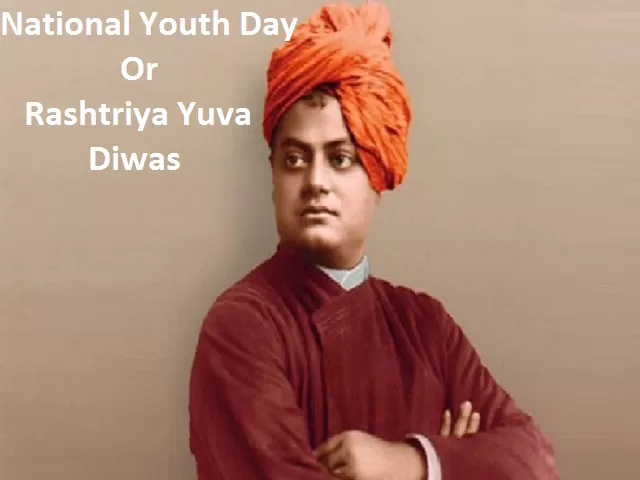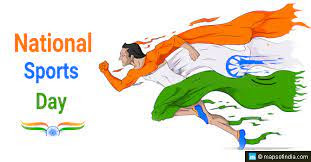MAIN MENU
- HOME
- ABOUT US
- LIBRARY
- KVS HQ
- KVS (R0)
- ZIET(Chandigarh)
- ZIET(Bhubaneswar)
- ZIET(Mysore)
- ZIET(Mumbai)
- READING CORNER
- E- MAGAZINE
- CAREER & COUNSELLING
- PHOTO GALLERY
- VIRTUAL LIBRARY
- HINDI BOOK EXHIBITION
- BOOK DONATION FORM
- BOOK REQUIREMENT FORM
- LIBRARY ON PHONE
- ANNUAL ACTIVITY PLAN(2024-25)
- राजभाषा
- NEW ARRIVALS
Books are Best Friends
HAPPY REPUBLIC DAY
What is the Significance of Republic Day in India?
National Girl Child Day
The National Girl Child Day is celebrated in India every year on January 24th. It was initiated in 2008 by the Ministry of Women and Child Development and the government of India, in order to spread public awareness about inequities that girls face in Indian society. The day is celebrated with organized programs including awareness campaigns about Save the Girl Child, child sex ratios, and the creation of a healthy and safe environment for girls
Objectives
- To spread awareness among people about inequalities faced by girls in the country.
- To promote awareness about the rights of girl children.
- To increase awareness on the importance of female education, health, and nutrition.
Netaji Subhash Chandra Bose Quiz
23 January is celebrated as the Birthday of Netaji Subhash Chandra Bose. This year too, we are celebrating his birthday with great zeal.
A quiz is being organised by the Vidylaya library on the life, contribution of Netaji Subhash Chandra Bose.
Take part in the quiz.
QUIZ ON REPUBLIC DAY
What is the Significance of Republic Day in India?
NATIONAL YOUTH DAY
National Youth Day 2022: Know about Theme, History, Significance and Key Facts here on Rashtriya Yuva Diwas
National Youth Day: History
In 1984, the Indian Government first declared to celebrate the birthday of Swami Vivekananda i.e. 12 January as National Youth Day. Since then the day has been celebrated as National Youth Day all over the country. The main aim of the Government is to make a better future for the country by motivating the youths through the way of their life and ideas of the Swami Vivekananda. It is a great way to wake up the eternal energy of the youths as well as to make the country develop.
National Youth Day or Yuva Diwas or the birthday of Swami Vivekananda is celebrated every year at many centres of Ramakrishna Math, Ramakrishna Mission, and their branches with great enthusiasm and joy according to the Indian culture and tradition. A great mangal aarti, devotional songs, meditation, religious speech, sandhya aarti, etc. are performed.
Also, at various schools, colleges it is celebrated by performing the parade, speech on Swami Vivekananda, recitations, songs, conventions, essay-writing competition, seminar, etc. To inspire the Indian youth's writings and lectures of Swami Vivekananda are also performed by the students. Several competitions are also performed not only in India but outside the country to promote education, trust among youths, etc. to make the country developed.
Prime Minister Narendra Modi will inaugurate the 25th National Youth Festival which is a five-day festival. He will be addressing the gathering on the occasion of Swami Vivekananda's birthday. The main purpose to celebrate the festival is to increase bonding between the diverse cultures of the country to strengthen the unity of the nation.
On 13 January 2022, National Youth Summit will also be organised with an objective to bring diverse cultures of India and integrate them into a united thread of ‘Ek Bharat, Shreshtha Bharat’, through an immersive and interactive approach.
Human Rights Day 2021
Human Rights Day 2021: Human Rights Day is observed by the International community every year on 10 December — the day the United Nations General Assembly adopted, in 1948, the Universal Declaration of Human Rights. When the General Assembly adopted the Declaration, it was proclaimed as a "common standard of achievement for all peoples and all nations", towards which individuals and societies should "strive by progressive measures, national and international, to secure their universal and effective recognition and observance".
The Human Rights Day 2021 theme is "Equality, Reducing inequalities, advancing human rights." This year’s Human Rights Day theme relates to 'Equality' and Article 1 of the UDHR – "All human beings are born free and equal in dignity and rights."
Human Rights sets out a broad range of fundamental rights and freedoms to which all of us are entitled. It guarantees the rights of every individual everywhere, without distinction based on nationality, place of residence, gender, national or ethnic origin, religion, language, or any other status.
Education is a fundamental human right of every woman, man and child. Yet this right is still not a reality for millions and is violated every single day.
The Human Rights Council comprises 47 elected United Nations Member States, which are empowered to prevent inequality, abuses and discrimination, protect the most vulnerable, and punish the perpetrators of human rights violations.
The Universal Declaration of Human Rights empowers us all. The principles enshrined in the Declaration are as relevant today as they were in 1948. We need to stand up for our own rights and those of others. We can take action in our own daily lives, to uphold the rights that protect us all and thereby promote the kinship of all human beings.
International Anti-Corruption Day 2021
Theme, History, Significance
The International Anti-Corruption Day is observed to raise awareness and find newer ways to combat corruption. Society is largely affected by corruption and preventing it will help progress towards sustainable development goals and promote equity.
Date And History
The International Anti-Corruption Day is observed on December 9. The UN General Assembly (UNGA) adopted a convention against corruption on October 31, 2003. The same year, the UN General Assembly also designated December 9 as International Anti-Corruption Day to prevent corruption and raise awareness about the convention.
Significance
Curbing corruption can help create jobs, achieve gender equality, and secure wider access to essential services such as healthcare and education.
HISTORY OF NATIONAL UNITY DAY (RASHTRIYA EKTA DIWAS)
The Iron Man of India, also known as the Loh Purush, Vallabhbhai Jhaverbhai Patel was born on October 31, 1875. He is also popularly known as Sardar Patel and was one of the most known Indian politicians after Independence when the British withdrew from the deeply divided country. Under Jawarharlal Nehru’s term as Prime Minister, Sardar Patel served as the First Deputy Prime Minister of India.
Sardar Patel is most popularly known as a founding father of the Republic of India. This is because he played a significant role in integrating the independent provinces into a unified India just after the partition of India and Pakistan. He also acted as Home Minister during the political integration of India and the Indo-Pakistani War of 1947.
In 2014, Rashtriya Ekta Diwas or National Unity Day was introduced by the government of India. The official statement for Rashtriya Ekta Diwas was provided by the home ministry of the country. It cites that the National Unity Day “will provide an opportunity to re-affirm the inherent strength and resilience of our nation to withstand the actual and potential threats to the unity, integrity and security of our country.”
For his efforts towards a united India, Sardar Patel’s birth anniversary is now celebrated as National Unity Day. This is also known as Rashtriya Ekta Diwas. To celebrate the day, the ‘Unifier of India’ was honored with the Statue of Unity which is actually the world’s tallest statue! Dedicated to Sardar Patel, the statue is approximately 597 feet in height. Prime Minister of India Narendra Modi inaugurated the event on October 31, 2018.
On October 31, 2019, an event called ‘Run for Unity’ was also held to spread awareness about Sardar Vallabhbhai Patel’s contribution to Indian history. To commemorate his 144th birth anniversary, thousands of people participated in the run which began from the Major Dhyan Chand National Stadium in Delhi. The almost one-mile run took place at the India Gate C-Hexagon-Shah Jahan Road. Today, Rashtriya Ekta Diwas is remembered as the unsung efforts of the ‘Iron Man’, who shaped the country and the idea of Hindus and Muslims residing in the same country together.




















